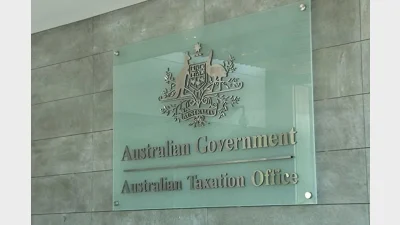(December-2002) ASFA Conference puts super in 20/20 focus
There was something for everyone at this year’s Association of Superannuation Funds of Australia (ASFA) conference. With an impressive line up of speakers and six concurrent sessions running at a time, delegates were spoiled for choice with everything from low returns, member communications and alternative investments to adequacy, the safety of super and how to run a super fund coming under the microscope.
The conference kicked off with former deputy managing director of the International Monetary Fund Stanley Fischer warning the Government that healthcare provision would be a greater threat to future economic stability than retirement incomes because “here, as in other OECD nations, [healthcare] has received a lot less attention”.
But Fischer, who is vice-chairman of Citigroup, added that Australia was ahead of all other OECD countries in addressing the retirement and savings dilemma.
“The usual role of a visitor from abroad is to sound the alarm bells, to help fight against complacency. But the recent performance of the Australian economy, and the strength of public finances, all contribute to make the ageing of the population more manageable in Australia than in other OECD countries,” he said.
“Add to that the fact Australia long ago introduced the kind of pension system that is still being debated in other countries, and you will realise that this visitor to Australia cannot bring many lessons about pension reform from abroad. Instead, the rest of the world has much to learn by studying Australia’s experience.”
Former ASFA chair and JANA Investment Advisers director David Holston warned that with the demographic chart of the nation becoming more pear-shaped — fewer taxpayers supporting a growing number of non-taxpayers in retirement — the Government might have to turn to migration to alleviate some of this pressure. “Migration is one aspect that can change the shape of the pear, but we haven’t had a proper public debate on this dynamic for at least a decade,” he said.
The pollies, however, were unable to agree on what could be done to ensure that Australians amassed adequate savings for retirement.
Parliamentary secretary to the Treasurer Senator Ian Campbell said the Government examined adequacy in an integrated way and that while super was important, buying a home and other investments should not be underestimated. He added that the Government believed super already enjoyed significant tax advantages.
Shadow minister for retirement incomes and savings Senator Nick Sherry said it was important to get the taxation of super right because every $1 taken out in tax reduced Australian’s retirement savings. But because there wasn’t enough revenue to make up for tax cuts, the Labor party favoured targeted tax cuts, such as reducing contributions tax.
In line with the ‘20/20 Vision’ theme of the conference, both the Australian Securities and Investments Commission and Australian Prudential Regulation Authority threw more light on what licensing demands super funds could expect from the implementation of the Financial Services Reform Act and the Government’s plans to boost the safety of super.
But Watson Wyatt Worldwide global head of investment consulting Roger Urwin noted that ‘20/20 vision’ wasn’t possible in the investment world with its changing psychology. “We all aspire to it but you cannot get it,” he said. “This is a very fuzzy subject… You have to recognise the limits of predictive powers.”
Urwin added that a “crisis” was brewing in the wake of a massive deterioration in balance sheets because of poor defined benefit (DB) fund performance.
That employers with DB plans risked becoming insolvent was also discussed by the UK’s National Association of Pension Fund’s Chair, and Mercer HR Consulting principal, Peter Thompson. He said while preferred by unions, DB funds in Britain were deemed paternalistic, outdated and perhaps unmanageable as some companies, such as British Airways, had DB plans larger than the market capitalisation of the whole company.
ASFA also puts itself up for scrutiny, outlining its policies and challenges.
CEO Philippa Smith noted while there had been “dancing in the Isles” at ASFA after the Government’s response to a paper on safety in super was released, there were still some real issues to be worked through.
And research director Michaela Anderson said while ASFA’s emphasis in the past had been on the collection phase of super, it would focus more on the spending phase in future. It would also give greater attention to issues such as corporate governance and age discrimination, given that people are working and living longer.
Recommended for you
The industry fund has called on ASX 300 companies to strengthen priorities around resilience, climate, and gender, while itself facing criticism over fossil fuels.
Industry fund HESTA has filed an appeal against an ATO decision on tax offsets from franking credits, with the Australian Retirement Trust set to file a similar claim soon.
The latest superannuation performance test results have shown improvements, but four in 10 trustee-directed products continue to exhibit “significant investment underperformance”, warns APRA.
The corporate regulator has launched civil proceedings against Equity Trustees over its inclusion of the Shield Master Fund on super platforms it hosted, but other trustees could also be in the firing line.











